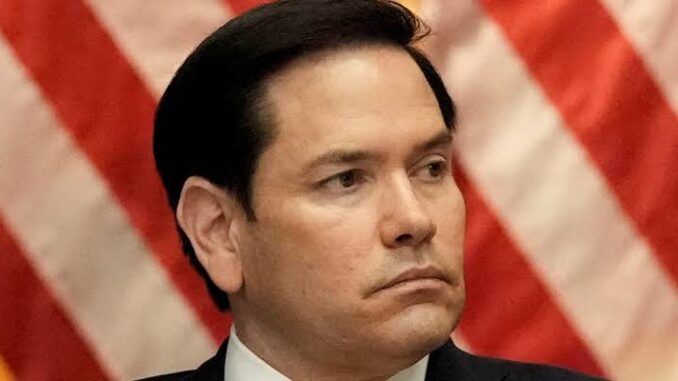
Sanctions Tighten as U.S.-Iran Nuclear Talks Stall Following Military Explosions…
U.S.-Iran Nuclear Talks Delayed Amid Sanctions, Explosions, and Leadership Shake
Efforts to revive nuclear negotiations between the United States and Iran have hit a significant impasse, with diplomatic momentum stalling amid new American sanctions, unexplained explosions at key Iranian military sites, and internal political shifts within Iran’s leadership. The combination of these developments has further complicated an already fragile path toward restoring the 2015 Joint Comprehensive Plan of Action (JCPOA), widely known as the Iran nuclear deal.
New Sanctions Undermine Diplomatic Progress
Earlier this week, the U.S. Treasury Department announced a fresh round of sanctions targeting individuals and entities associated with Iran’s missile and drone development programs. These sanctions, U.S. officials said, are a direct response to Iran’s alleged support for regional militant groups and continued ballistic missile activity in violation of UN resolutions.
While Washington maintains that these sanctions are unrelated to the nuclear file, Iranian officials have accused the U.S. of undermining trust and sabotaging talks. “The Americans speak of diplomacy while tightening the noose of sanctions,” said Iranian Foreign Ministry spokesperson Nasser Kanaani during a press conference in Tehran. “This contradiction must end if they seek serious negotiations.”
Explosions Fuel Tensions and Suspicions
Adding to the strain, a series of mysterious explosions rocked military installations near Isfahan and Shiraz over the past two weeks, resulting in multiple casualties and significant infrastructure damage. Iranian state media have remained vague on the causes, but several reports suggest sabotage, potentially by foreign actors seeking to disrupt Iran’s weapons development or its nuclear infrastructure.
Though no country has claimed responsibility, Iranian officials have hinted at Israeli involvement—an allegation that Israel has neither confirmed nor denied. Analysts note that such incidents often coincide with sensitive diplomatic moments and can escalate tensions between Iran and its adversaries, including the U.S. and Israel.
“The explosions send a dangerous signal,” said Ali Vaez, Iran Project Director at the International Crisis Group. “They reinforce Iranian suspicions and hardliner narratives, which makes the diplomatic environment even more toxic.”
Leadership Shifts Raise Doubts Over Iran’s Commitment
At the heart of the diplomatic uncertainty is a sudden leadership shake-up in Iran’s nuclear negotiating team. Iran’s chief nuclear negotiator, Ali Bagheri Kani, was unexpectedly replaced by Hossein Maleki, a lesser-known conservative diplomat seen as more aligned with Supreme Leader Ayatollah Ali Khamenei’s hardline stance.
This personnel change has been interpreted by Western diplomats as a sign that Tehran may be hardening its position. “This is not just a reshuffling,” said one senior European official involved in previous rounds of talks. “It reflects an internal consolidation of power around those who are deeply skeptical of any deal with the West.”
Adding to the complexity, upcoming parliamentary elections in Iran have shifted the political climate further to the right, with reformist voices sidelined and voter turnout at a historic low. Analysts believe that the regime’s increasingly insular posture is narrowing the space for diplomatic flexibility.
Washington and Allies Reassess Strategy
In Washington, the Biden administration faces growing domestic pressure to either harden its stance or abandon talks altogether. Congressional Republicans have accused the White House of appeasement, while some Democrats warn that diplomacy is the only viable path to prevent Iran from acquiring a nuclear weapon.
The U.S. has also intensified consultations with European allies, Israel, and Gulf nations, all of whom share concerns about Iran’s enrichment activities, which now reportedly include uranium enriched up to 60% purity—dangerously close to weapons-grade.
State Department spokesperson Matthew Miller said on Thursday that the U.S. remains open to diplomacy but is “prepared for all scenarios,” signaling a cautious but firm approach as tensions continue to escalate.
Outlook Uncertain as Risk of Escalation Grows
With mutual distrust deepening and regional flashpoints multiplying, the prospect of a quick return to the negotiating table appears dim. Experts warn that absent a breakthrough, the region could slide into deeper instability.
“The window for diplomacy isn’t closed yet,” said Suzanne DiMaggio, a senior fellow at the Carnegie Endowment for International Peace, “but it’s narrowing rapidly. If both sides don’t recalibrate soon, we may see a return to the brinkmanship of past decades.”
As the international community watches closely, the fate of nuclear diplomacy between Washington and Tehran hangs in the balance—threatened not only by politics and policies, but by bombs, backroom power shifts, and the weight of history.
Would you like a visual timeline or infographic to accompany the article?
Leave a Reply